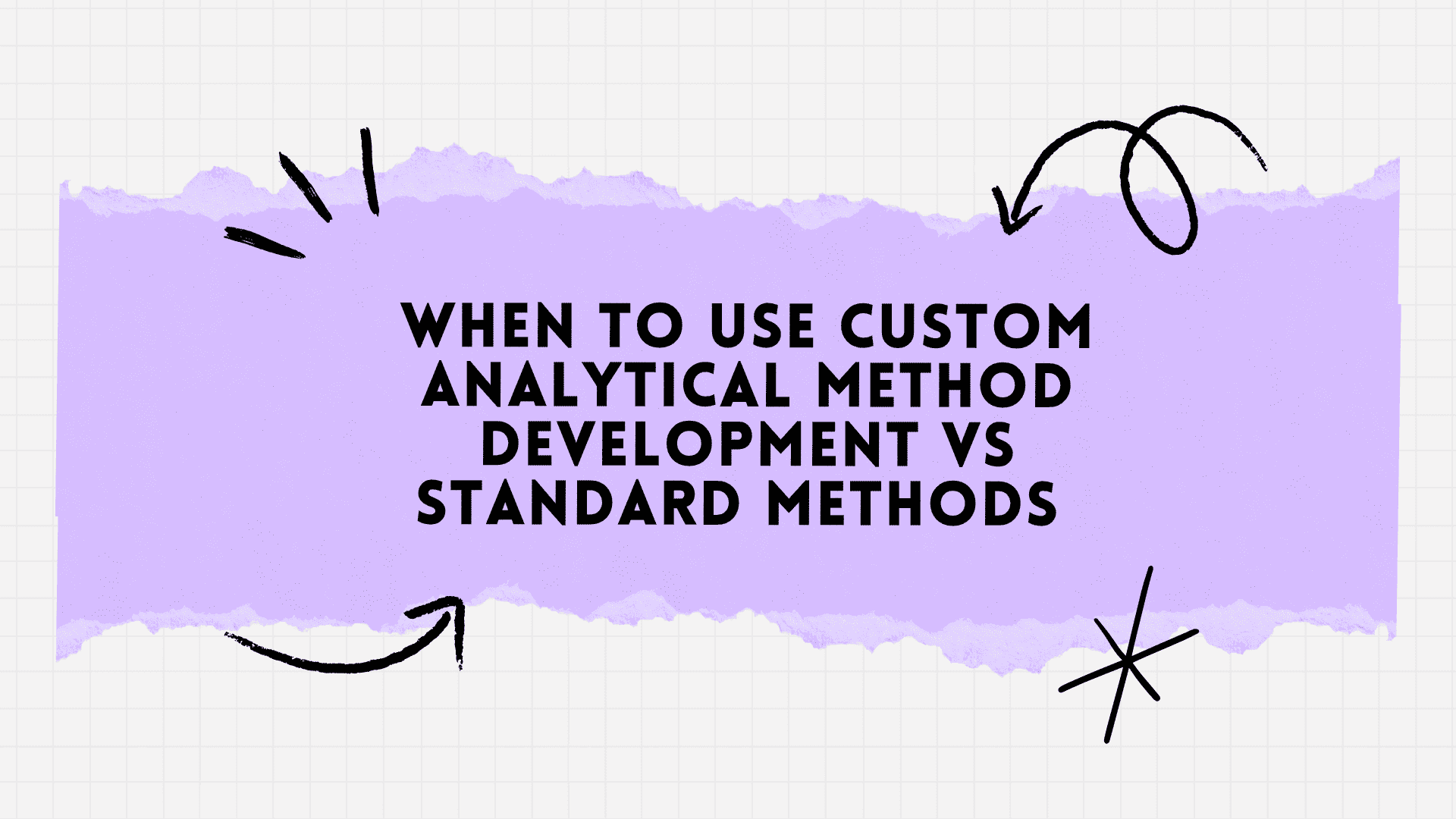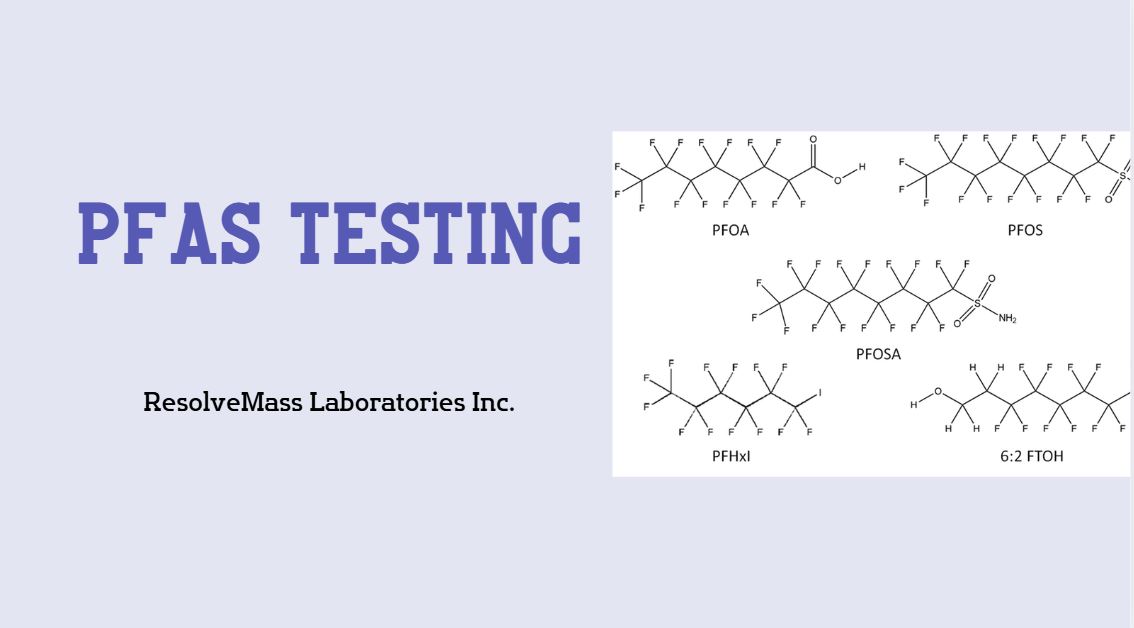Summary of Key Takeaways
- Custom Analytical Method Development is essential for complex, novel, or highly regulated projects where standard methods fall short.
- Standard methods work well for routine, widely studied compounds but may not meet specific accuracy or sensitivity needs.
- Regulatory compliance, product complexity, and unique project timelines drive the choice between custom vs standard.
- ResolveMass Laboratories offers end-to-end analytical method development solutions for APIs, impurities, residual solvents, nitrosamines, and more.
- This guide helps you choose the right path with science-backed expertise and proven laboratory experience.
Introduction: Choosing Between Custom Analytical Method Development and Standard Methods
In industries like pharmaceuticals, biotechnology, and chemicals, deciding between Custom Analytical Method Development and standard testing methods can make a significant difference to project success. A custom method is more than a technical process — it is a carefully designed solution created to address specific chemical, biological, or compliance challenges.
This approach becomes vital when a compound has unusual solubility, stability, or detection requirements. It allows testing methods to be fine-tuned for maximum precision, even under difficult conditions. These methods are also designed with both research and manufacturing needs in mind, ensuring consistency from early development to final production.
At ResolveMass Laboratories, highly trained scientists combine advanced analytical technologies with deep regulatory knowledge. This results in methods that are accurate, consistent, and fully validated to meet strict global standards — supporting every stage of a product’s lifecycle.
What is Custom Analytical Method Development?
Custom Analytical Method Development is the process of designing, refining, and validating a unique testing method to detect, measure, or identify a specific compound under controlled conditions. Each method is built specifically for the compound and its sample matrix, ensuring the highest accuracy and compatibility.
Unlike standard methods, which follow fixed protocols, custom methods are created from the ground up to address unique testing challenges, such as:
- Special chemical properties in a new API
- Complex sample types that interfere with detection
- Higher sensitivity requirements for trace-level impurities
- Special testing needs for certain regulatory markets
By adjusting every step — from sample preparation to instrument settings — custom methods can deliver accuracy and reliability beyond what standard approaches can provide.
➡ Learn more: Analytical Method Development Services
When Standard Methods Work Best
Standard methods, such as those found in pharmacopeias like USP, EP, or JP, are ideal for compounds that are already well-understood. They offer faster approval, easier implementation, and lower initial costs.
| Criteria | Standard Methods | Custom Methods |
|---|---|---|
| Speed to implementation | High | Moderate |
| Cost efficiency | High | Variable |
| Regulatory acceptance | Immediate | Requires validation |
| Fit for complex matrices | Limited | Excellent |
| Sensitivity optimization | Limited | Customizable |
While effective for routine quality control, standard methods are less flexible for unusual compounds or high-sensitivity needs.
When to Use Custom Analytical Method Development
1. Complex or Novel APIs
Some APIs have unique chemical behaviors that make them difficult to test using standard protocols. Custom methods ensure precise detection, reducing the risk of errors during development or manufacturing.
➡ Related service: Method Development for Complex APIs
2. Detailed Impurity Profiling
If impurities fall outside the detection limits of standard methods, a tailored approach allows for highly sensitive detection and accurate quantification — ensuring regulatory compliance. This level of detail helps safeguard product safety and supports smooth regulatory submissions.
➡ Related service: Impurity Profiling
3. Nitrosamine Detection
With strict global regulations on nitrosamines, standard methods may lack the required sensitivity. Custom methods provide the precision necessary to meet these requirements. By meeting or exceeding detection limits, these methods reduce the risk of costly compliance delays.
➡ Related service: Nitrosamine Analysis
4. Residual Solvent Testing
Some products demand extremely low detection limits that only a custom-developed method can achieve, especially with diverse or challenging sample matrices. This ensures every batch meets the strictest safety and quality standards before release.
➡ Related service: Residual Solvent Testing
5. Unusual or Complex Matrices
Biological, food, or environmental samples can interfere with testing. Customized extraction and separation techniques overcome these issues, delivering reliable results. Such precision testing improves data accuracy and strengthens decision-making in product development.
➡ Related service: Bioanalytical Quantification
Regulatory Considerations for Custom Analytical Method Development
Custom methods must meet ICH Q2(R1) guidelines, covering accuracy, precision, specificity, detection limits, quantitation limits, linearity, range, and robustness. These requirements ensure that the methods are scientifically sound and can be defended in audits or regulatory reviews.
While they often start from pharmacopeial principles, custom methods are adjusted to suit the project’s unique needs, ensuring compliance in multiple jurisdictions and avoiding costly revalidations later.
➡ Read more: Method Development vs Method Validation
Key Advantages of Custom Analytical Method Development
- High Precision: Accurate results even in complex sample types
- Regulatory Adaptability: Flexible enough to meet new compliance rules
- Improved Sensitivity: Detects trace-level impurities and contaminants
- Wide Applicability: Works for both R&D and full-scale production
These benefits can lead to faster approvals, fewer compliance risks, and stronger product quality control.
Making the Right Choice
When deciding between Custom Analytical Method Development and standard methods, consider:
- The complexity of the compound
- Applicable regulations
- Available budget and timelines
- Long-term testing needs
Custom methods are usually best for new, complex, or sensitive projects, while standard methods are ideal for well-known compounds that require fast, cost-effective testing.
How ResolveMass Laboratories Ensures Reliable Results
ResolveMass Laboratories has a multidisciplinary team with expertise in analytical chemistry, chromatography, and mass spectrometry. Their advanced equipment and strict quality processes ensure every method is reproducible, accurate, and regulator-ready.
Working closely with clients from start to finish, they provide transparency, guidance, and dependable results — reducing risks and speeding up approvals.
➡ Request a Custom Analytical Method Development Quote
Conclusion
Selecting between Custom Analytical Method Development and standard methods comes down to finding the right balance between speed, cost, compliance, and testing accuracy. At ResolveMass Laboratories, we design every custom method to meet your specific project needs — ensuring it is fully validated, reliable, and aligned with regulatory standards. Our approach not only delivers results you can depend on but also helps you achieve smoother approvals and stronger product quality. With the right method in place, you can move forward with confidence at every stage of development.
Contact ResolveMass Today-
FAQs – Custom Analytical Method Development vs Standard Methods
Standard methods are ready-made, widely accepted testing procedures, often found in pharmacopeias. Custom methods, on the other hand, are specially created to meet the needs of a specific compound, sample type, or testing challenge. This makes them more flexible for unique or complex projects.
A standard method works best when the compound is well-known, already approved by regulators, and the sample is simple to test. In such cases, these methods save time and cost while still delivering accurate results.
Yes, the initial cost of Custom Analytical Method Development can be higher than using a standard method because it involves research, design, and validation from scratch. However, it often saves significant money later by preventing failed tests, avoiding costly rework, and reducing the risk of regulatory delays. In the long run, it can be a smarter investment for complex or high-value projects.
Custom methods are accepted by regulators as long as they meet strict validation requirements and follow recognized guidelines like ICH Q2(R1). When the method is properly documented and scientifically sound, it is fully compliant and ready for audits. This ensures that even a non-standard approach can gain quick approval if it meets all quality and performance standards.
Often yes, especially when dealing with novel impurities that standard pharmacopeial methods cannot detect or measure accurately. A custom method allows for higher sensitivity, better selectivity, and more precise quantification of these impurities. This ensures both safety compliance and confidence in the quality of the final product.
Yes, standard methods can be adjusted to fit specific needs, such as changing sample preparation steps or detection settings. However, significant modifications usually require full revalidation, which can be almost the same as creating a new custom method. This is why, for complex changes, starting with a custom method may be more efficient.
Get Started with Expert Method Development
References
- European Medicines Agency. (2024, June 14). ICH Q2(R2) Validation of analytical procedures – Scientific guideline. European Medicines Agency. https://www.ema.europa.eu/en/ich-q2r2-validation-analytical-procedures-scientific-guideline
- Rina, R., Baile, M., & Jain, A. (2021). A review: Analytical method development and validation. Systematic Reviews in Pharmacy, 12(8), 450–454. https://www.sysrevpharm.org/articles/a-review-analytical-method-development-and-validation.pdf
- International Council for Harmonisation of Technical Requirements for Pharmaceuticals for Human Use. (2023). Validation of analytical procedures: Q2(R2). https://database.ich.org/sites/default/files/ICH_Q2%28R2%29_Guideline_2023_1130.pdf


